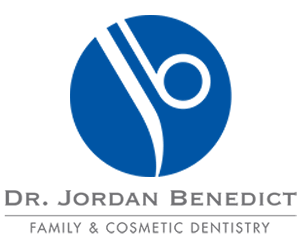The Importance of HPV Vaccination and its Connection with Oral Cancer
 |
What is HPV?
Human Papillomavirus, commonly known as HPV, isn't just a virus, it is a group of more than 100 different types of viruses. More than 40 types of HPV are transmitted through sexual contact. These types can cause infections in the genital areas of both women and men. Additionally, some types of HPV can infect certain parts of the mouth and throat.
According to the Canadian government, 70% of sexually active men and women will have a sexually transmitted HPV infection at some point in their lives. Although most high-risk HPV infections resolve within a few years, some can persist and ultimately lead to cancer. Most of them will never know they've been infected because HPV often doesn't cause any symptoms. This makes it hard to know exactly when or how the virus spreads.
HPV and Oral Health
According to research, approximately 25% to 35% of mouth and throat cancers are related to oral HPV infection in Canada. The incidence rate of HPV-associated oropharyngeal cancer (cancer affecting the back of the throat) was more than 4.5 times higher in males than females in 2012.
Despite Canada's success in managing cervical cancer through detection and vaccination, the situation for HPV-related mouth and throat cancers is different. These cancers often occur in middle-aged individuals, making the impact of HPV vaccination more gradual.
Symptoms of HPV and Oropharyngeal Cancer
According to research, many people with HPV have no symptoms of the infection. Other symptoms of HPV include:
- Anogenital warts (also called Condylomata) are one sign of HPV infection. They may look like a small cauliflower or be flat.
- In women, warts may appear on the vulva, thigh, anus, rectum, vagina, or urethra. During pregnancy, the number and size of warts can increase but usually decrease after delivery.
- With an inactive infection, cervical cells appear normal under a microscope during a Pap (Papanicolaou) test. An active infection can follow two courses: abnormal cells become normal again, or the cells slowly progress to cervical cancer.
- In men, warts may appear on the penis, scrotum, thigh, anus, rectum, or urethra.
Oropharyngeal Cancer (Oral or Throat Cancer):
- Sore on the lip or inside the mouth that doesn't heal
- Lumps or Thickening: Noticeable lumps or thickening in the lips, mouth, or cheek.
- Discoloured Patches: White or red patches on the gums, tongue, tonsil, or lining of the mouth.
- Throat Issues: Sore throat or a sensation of something being stuck in the throat that persists.
- Difficulty Chewing or Swallowing: Trouble with chewing or swallowing.
- Jaw or Tongue Problems: Difficulty moving the jaw or tongue.
The Benefits of HPV Vaccination in Preventing Cancer-causing Infections and Precancers
- Preventing HPV Infections: HPV (human papillomavirus) is highly contagious and primarily spreads through sexual contact. Vaccination at a young age protects against several high-risk HPV strains, reducing the risk of infection.
- Cancer Prevention: HPV is a major cause of various cancers, including cervical, anal, penile, and oropharyngeal cancers. Vaccination significantly lowers the risk of developing these cancers in both males and females.
- Herd Immunity: Young people who get vaccinated not only protect themselves but also contribute to herd immunity. This benefits those who may not be able to get vaccinated and helps reduce the spread of the virus within the community.
- Long-Lasting Protection: HPV vaccines offer durable protection, potentially providing lifelong immunity against the targeted HPV types. This ensures individuals remain protected well into adulthood.
- Timely Vaccination: Vaccination is most effective when administered during adolescence and early adulthood. Ideally, individuals should be vaccinated before becoming sexually active and before potential exposure to HPV.
- Oral Cancer Prevention: By getting vaccinated against HPV, particularly before the age of 25, young adults can substantially reduce their risk of oral health issues and oral cancers in later life. Oral health professionals play a vital role in preventing oral HPV infection and its link to oral cancer through regular screenings and promoting good oral hygiene.
The Canadian Cancer Society recommends that Canadians get vaccinated to reduce their risk of HPV-related cancer. Staying informed about the importance of HPV vaccination and understanding its benefits and potential consequences is key to making informed decisions about one's health.
Consulting with your doctor is vital for personalized guidance on HPV vaccination and overall health management. If you have any concerns about possible HPV infections in your oral health or detect any oral cancer symptoms, schedule an appointment with our dental team right away so we can help determine the best treatment for you.


